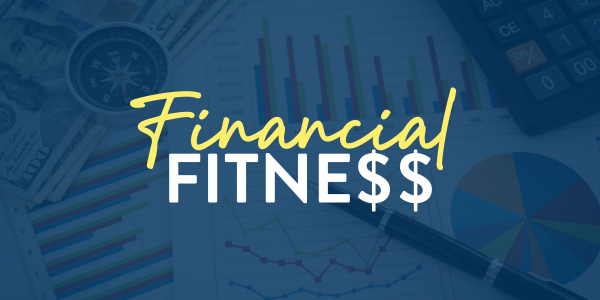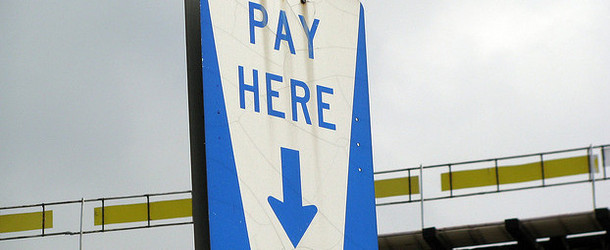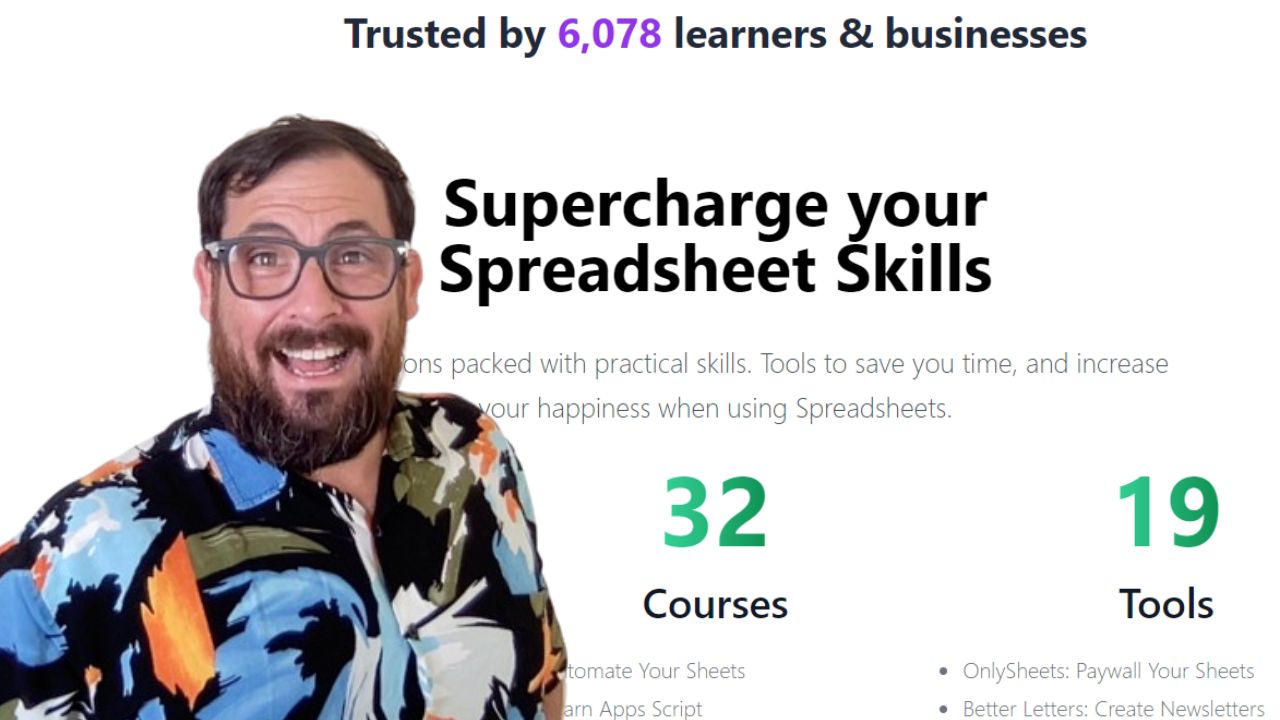[ad_1]
Kathleen Kerrigan, nominee for choose of the USA Tax Courtroom, smiles throughout a listening to earlier than … [+]
U.S. Tax Courtroom Chief Choose Kathleen Kerrigan discusses the court docket’s post-COVID transition and case administration system, and the way the extra funding from the Inflation Discount Act could also be used.
This transcript has been edited for size and readability.
David D. Stewart: Welcome to the podcast. I am David Stewart, editor in chief of Tax Notes At present Worldwide. This week: assembly the chief choose.
Earlier this yr, Kathleen Kerrigan started her time period as chief choose of the U.S. Tax Courtroom, taking up for Choose Maurice Foley, who we interviewed on the finish of 2020.
Since then, the court docket has transitioned into its post-COVID period and is trying ahead to extra funding from the Inflation Discount Act. We’ll hear extra concerning the court docket beneath Choose Kerrigan from Tax Notes authorized reporter Nathan Richman. Nate, welcome again to the podcast.
Nathan Richman: Thanks for having me.
David D. Stewart: I perceive you lately talked to Kerrigan, however earlier than we get into that, may you give us a little bit of background on the choose?
Nathan Richman: Effectively, she spent a good period of time engaged on Capitol Hill, serving in Rep. Richard Neal (D-Mass.) and Sen. John Kerry’s (D-Mass.) workplaces earlier than and after a stint at BakerHostetler. After which in 2012, President Obama nominated her for a 15-year time period on the Tax Courtroom.
David D. Stewart: Now how does one change into chief choose of the court docket?
Nathan Richman: The judges serving Senate-confirmed phrases vote for the chief choose for two-year phrases.
David D. Stewart: Earlier than we get to the interview, may you inform us a bit about what you talked about?
Nathan Richman: We mentioned additional court docket motion associated to the evolving pandemic, the rollout of the court docket’s new case administration system, and what the court docket expects to see from the Inflation Discount Act.
David D. Stewart: All proper. Let’s go to that interview.
Nathan Richman: Choose Kerrigan, welcome to the podcast and thanks for becoming a member of us.
Kathleen Kerrigan: You are welcome.
Nathan Richman: Let’s simply begin off fairly straightforwardly. Inform us about your journey to the Tax Courtroom. What received you began in tax, and the way did you find yourself nominated to the court docket?
Kathleen Kerrigan: I have been with the court docket for over 10 years now. I began in tax. Out of legislation faculty, I first labored for Neal, and at the moment he was on the Banking Committee. I wasn’t certain what I used to be going to do, after which he received on the Home Committee on Methods and Means.
Chairman of the USA Home of Representatives’ Committee on Methods and Means, Richard Neal, … [+]
I wouldn’t have my LLM, however I did take a pair courses at evening within the LLM program when he received on Methods and Means. I converted to doing his tax work, and that is once I began doing tax coverage work. I labored for him for about seven years. Then I went to BakerHostetler and was there for about seven years.
From there I went to work for Kerry and did his Finance Committee work. I assume it is a theme — I believe I used to be there about seven years. Whereas I used to be there I used to be nominated by Obama for the Tax Courtroom.
Nathan Richman: Seems like fairly a journey. What’s your favourite half about being a Tax Courtroom choose?
Kathleen Kerrigan: I believe some folks marvel how any individual who did not have a observe within the courtroom may wind up being a Tax Courtroom choose. However I believe being on the Hill doing work for a member of the taxwriting committees could be very beneficial coaching. It covers a plethora of points.
Whenever you’re doing that kind of labor, you may’t change into an knowledgeable in a single kind of space since you’re at all times working all around the code. Usually tax payments aren’t very centered on only one part of the code; they’re somewhat bit in every single place. I really feel like that’s good coaching for the Tax Courtroom as a result of nobody choose makes a speciality of any explicit circumstances.
My shortest trial was 20 minutes, and my longest trial, I believe, was six and a half weeks. I’ve gone from $200 of a deficiency to over a billion.
Nathan Richman: Do not the judges come from a variety of backgrounds? You have received a legislative background, and a few folks come from litigation centered on one or planning centered on different tax subjects. It is a plethora.
Kathleen Kerrigan: Now we have a variety of backgrounds. We even have some individuals who in themselves have a large background, who’ve accomplished a little bit of every thing. Now we have individuals who’ve been on the Hill. One one who’s been on the Hill, IRS, and personal sector. We even have individuals who have come from the Division of Justice.
Nathan Richman: And you have one inside candidate: Choose Alina Marshall?
Kathleen Kerrigan: Sure. And we even have Choose Travis Greaves, who was additionally a former clerk.
Nathan Richman: Is the trial work your favourite half?
Kathleen Kerrigan: I do not know. I believe the trial work is what I discover probably the most attention-grabbing. I may take it from the start to the top. You begin along with your pretrial motions all through to your opinion. That covers a number of floor.
Nathan Richman: And solely a few of that you’ve got had to surrender since your election as chief choose?
Kathleen Kerrigan: I do a lot much less circumstances. I’m touring some. A pair earlier chief judges have accomplished that, and generally if a brand new choose comes alongside — I do not count on one within the fall classes I’ve scheduled — however you go try this as a coaching session.
However we had a really busy fall, and one of many issues the chief choose does is the schedule. To make the schedule work, I believed, “Oh it might assist if I take two classes.”
Nathan Richman: You wanted yet another hand?
Kathleen Kerrigan: Proper.
Nathan Richman: OK. When final I spoke to Foley, it was earlier than the COVID-19 vaccines had come out. It has been an eventful couple of years. I additionally see that the court docket simply posted a webcast on the pandemic and the way it’s been altering.
How has the court docket handled the evolving pandemic for the reason that starting of 2021?
Kathleen Kerrigan: Effectively, Foley might need given you a few of these statistics, however in 2020 we did 12 distant trials, after which in 2021 we did 122 distant trials. And in 2022 we have switched — beginning within the winter session, we do a mixture.
I believe when you look on the court docket’s web site you may see we nonetheless stream the distant trials, but it surely’s lots lower than we used to have.
I used to be attempting to calculate the numbers, after which it was off somewhat bit, as a result of a pair instances a choose will on the final minute change a session to a distant session. A couple of instances that is occurred: COVID within the spring. There have been some areas of the nation the place COVID was excessive and there was hardly something left on the calendar, so it wasn’t actually price going to that session.
We have had different instances the place the classes, most all of the circumstances have settled. We have had a spread, however we actually are again in individual to some extent. We have had some particular classes in individual, so we have been transferring alongside.
I believed that was good timing I used to be right here. I will give a plug for the Tax Courtroom’s webinar — you may register on our web site. I will be moderating it, and I will be joined by Judges Cary Douglas Pugh and Emin Toro.
We’ll be joined by two attorneys from the IRS and an legal professional from the non-public sector who’s lively within the American Bar Affiliation tax observe part. One other legal professional from the non-public sector, who’s very lively in our low-income tax clinics. Proper now, we work with about 133 low-income tax clinics.
What we’ll discuss is classes discovered from COVID, what we will enhance on, what we must always proceed to do, and the way we preserve transferring ahead as we’re nonetheless dwelling with COVID.
Nathan Richman: Even in 2020, as you had been beginning with the primary of those distant trials, there was some dialogue about these pandemic instruments and the way they could be helpful afterwards. What’s the court docket planning on conserving?
Kathleen Kerrigan: We’ve not made any closing resolution on that. This webinar will assist us be taught — not solely is it going to assist the general public, it is also going to assist the court docket be taught. That is on Wednesday, November 16, at 12 p.m.
The necessary half is the court docket is attempting to determine what works greatest for the taxpayer to ensure all taxpayers are accessing justice and are capable of avail themselves of a court docket treatment. What I believe what we’re is, if the events each agree that there generally is a distant trial and the choose is OK with it being a distant trial, we’re nonetheless permitting distant trials to go ahead.
Now we have no less than one distant session every calendar yr through which we’re assigning circumstances that should be distant, so that they’re actually not accomplished by area. There’s nonetheless some locations the place we borrow house. Generally, as a result of courts are behind, we’re not capable of get the house. So just a few cities, we did it distant this fall in these kinds of conditions.
Nathan Richman: Have you ever heard a lot from petitioners requesting these distant classes? Is there a big uptake there?
Kathleen Kerrigan: There’s some, however I believe there’s some individuals who nonetheless wish to have their day in court docket.
Nathan Richman: Feels extra official.
Kathleen Kerrigan: Or I believe generally they’d relatively be in individual.
Nathan Richman: Does the court docket have another COVID-related adjustments in thoughts in the meanwhile?
Kathleen Kerrigan: I believe we predict issues are working the best way they’re — that we had been capable of change to distant comparatively rapidly. We had been capable of preserve attempting circumstances and transferring alongside. Now we have a backlog, however that is a unique situation.
As a result of our regular variety of case classes is, tough estimate, about 170 a yr, I might say we’re in all probability going to be again heading in the right direction nearer to that quantity by the top of 2022.
However I believe we’re simply staying the course for now.
Nathan Richman: There’s been a number of headlines concerning the Inflation Discount Act and the IRS funding, however I perceive that you simply guys are getting about $153 million further over the following 10 years. What do you propose to do with that cash?
Inflation Discount Act and US flag
Kathleen Kerrigan: I believe the court docket’s trying into it and desires to make it possible for they supply prudent stewardship of taxpayers’ {dollars}. Presently, we’re ensuring that something we do is enhancing on what we do [em dash here? these clauses seem distinct] that taxpayers are capable of entry justice. Something that we do do could be in our congressional funds justification, but it surely would not be till subsequent yr’s. However we have not made any closing choices but.
We’re additionally going to need to see how our caseload adjustments due to the elevated cash that the IRS has. I believe that is an element we have now to take a look at.
Nathan Richman: So you are not but determined between extra clerks, extra workers, extra expertise, or much more particular trial judges — something like that?
Kathleen Kerrigan: No.
Nathan Richman: OK. So lastly with Boechler v. Commissioner, there’s some readability and finality on how Tax Courtroom jurisdiction and the Supreme Courtroom’s new views on submitting requirement statutes work together. However that is solely assortment due course of circumstances. What else must be clarified?
Kathleen Kerrigan: Effectively, there was a movement filed in a case on deficiency, and the court docket is addressing that sooner or later.
Nathan Richman: Whereas that occurs you are build up an inventory of circumstances that may comply with no matter that call is?
Kathleen Kerrigan: Proper. On the final docket, we’re ready on circumstances till that opinion comes out.
Nathan Richman: There’s additionally been some improvement in whistleblower jurisdiction not too long ago. For one factor there was Myers v. Commissioner, which even earlier than Boechler settled jurisdiction for whistleblower circumstances. However there’s additionally now Li v. Commissioner, which questions what’s really even a reviewable case. What circumstances really will be introduced? What’s the court docket doing?
Kathleen Kerrigan: We’re ready to see what occurs with the litigation in Li till it is settled legislation and monitoring it very intently and seeing how that impacts our whistleblower jurisdiction.
Though it looks like we have had some whistleblower circumstances currently, of our variety of petitions that got here in for 2021, solely about 0.2 % had been whistleblower.
Nathan Richman: What’s that calculate out to?
Kathleen Kerrigan: About 50 circumstances.
Nathan Richman: As in comparison with what?
Kathleen Kerrigan: 96 % is deficiency circumstances.
Nathan Richman: Oh wow. It generally looks like a two-to-one deficiency-to-collection-due-process.
On to the replace that was simply within the offing when final I had a Tax Courtroom choose to speak to: your new case administration system. It has been virtually two years since that is been reside. How’s that been going for you guys thus far?
Kathleen Kerrigan: It is going. For the primary side of it, we did lots with the general public interface. Now we’re doing lots with the inner interface.
Lots of options are actually coming to assist the choose. In our outdated system, we had been capable of grant and stamp deny orders. We weren’t ready to do this within the new system till the final month. We’re getting enhancements.
The following enchancment that is going to be on the non-public sector aspect goes to be consolidated circumstances, making it simpler to file a consolidated case. However we preserve transferring alongside and having enhancements.
I believe we’re previous the levels the place there’s some glitches. General I believe it has been a great change for the court docket and supplies extra entry. We’re hoping digital petitions improve, and that is one thing we’re attempting to encourage.
Nathan Richman: What is the uptake been thus far?
Kathleen Kerrigan: I believe it has been about 18 %.
Nathan Richman: And also you’re hoping to finish up someplace nearer to, say, 80 %?
Kathleen Kerrigan: I am undecided how sensible 80 % is, however we might similar to to see a gentle improve. Till we had DAWSON, we did not take petitions electronically.
Nathan Richman: What types of suggestions have you ever guys been getting from the general public, the IRS representatives, and many others.?
Kathleen Kerrigan: I believe we have gotten optimistic suggestions. There’s been just a few glitches, however we have been capable of tackle them, and I believe individuals are simply getting used to the system. I believe total it has been successful.
United States Tax Courtroom constructing in Washington DC
Nathan Richman: I am certain I am not the primary one to ask concerning the court docket’s stance on digital entry to recordsdata. However the place does the court docket stand on digital entry to paperwork, particularly in comparison with what’s accessible on PACER?
Kathleen Kerrigan: That is one thing the court docket’s regarded into and tries to make as a lot accessible as doable. However the issue is the taxpayer identification data — financial institution accounts, Social Safety numbers. As you may think about, trying on the displays in a Tax Courtroom case, you’ve gotten a number of that data. We’re simply attempting to hunt the correct steadiness.
Nathan Richman: Any ideas on utilizing DAWSON or among the pandemic instruments to tweak that steadiness? Can DAWSON segregate kinds of paperwork in a method that might be helpful?
Kathleen Kerrigan: I am undecided if it could possibly. One of many issues we have now is the events not redacting data.
Nathan Richman: Sure, I recall Choose Buch’s presentation from shortly earlier than the pandemic displaying all of the completely different events that failed their redaction. Any ideas to working one other research like that?
Kathleen Kerrigan: I believe it is one thing all of us nonetheless see. Proper now we have been centered on getting the requirements of DAWSON and dealing via the pandemic earlier than we return and sort out this situation once more.
Nathan Richman: Sadly, this could be thought of a luxurious?
Kathleen Kerrigan: I would not name it a luxurious, as a result of we’re at all times striving to ensure we have now as a lot data accessible to the general public as doable, and we’re at all times in search of to strike the correct steadiness.
Nathan Richman: One glitch that received a number of consideration was — you may appropriate me when you do not consider it as a glitch — the place complete case dockets had been getting sealed for anybody sealed doc in these circumstances. What occurred there, and the way has that been resolved?
Kathleen Kerrigan: It is nonetheless being resolved, however nice progress has been made to resolve it. I believe there’s just a few closed circumstances which it hasn’t been addressed in. Most judges, together with myself, have gone via and, with the assistance of our docket workers, have made certain the paperwork that had been alleged to be sealed are sealed and the remainder of the case is offered.
Nathan Richman: You are doing the handbook sealing of the person paperwork earlier than you unseal the entire dockets?
Kathleen Kerrigan: What occurred in DAWSON was when one thing was sealed, it triggered the entire case file to be sealed. We’re ensuring that the right paperwork are sealed.
Nathan Richman: That whenever you undo that complete sealing, it would not unseal the factor you’ll really wish to be sealed?
Kathleen Kerrigan: Sure.
Nathan Richman: Any ETA on the final stragglers of that decision?
Kathleen Kerrigan: Hopefully by the top of the yr. However largely these, as I mentioned, are closed circumstances.
Nathan Richman: Thanks very a lot for becoming a member of us. It has been an entertaining and illuminating dialogue.
Kathleen Kerrigan: Thanks.
[ad_2]
Source link

















